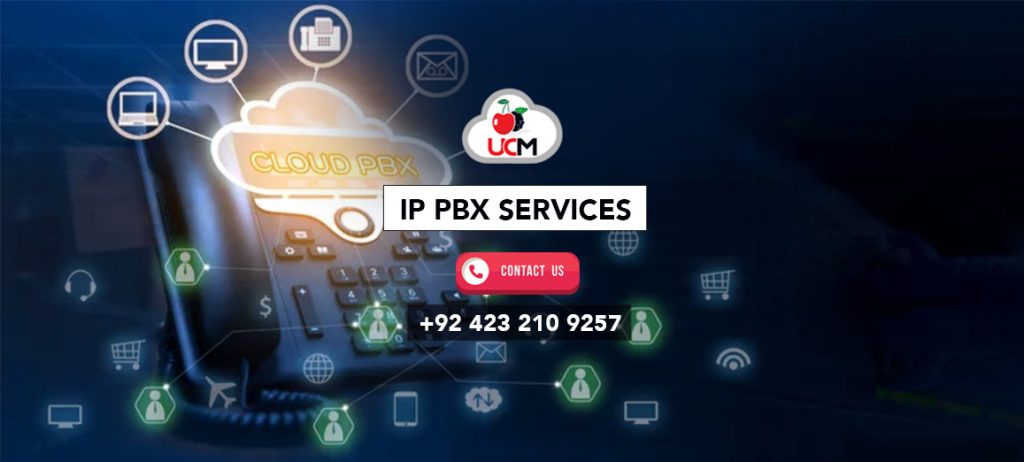Why Invest in Hosted PBX Systems?
The global PBX market has experienced significant growth in recent years, especially after drastic changes in business communication needs. This is why Hosted PBX Systems are becoming more prevalent to maintain agile communication and facilitate remote working. Increased reliability, advanced features, cost efficiency, and greater flexibility encourage companies to move from legacy phone systems to hosted solutions. Gone are the days when businesses made large initial investments in equipment and maintenance. Now, they can optimise their business internal and external communication and enhance operational efficiency without compromising service quality. Let’s learn everything about these valuable systems.
What are Hosted PBX Systems?
To learn about the functionality of advanced hosted systems, legacy systems must be studied. A telephone network that a company uses to communicate internally or externally is an example of a PBX. Another terminology, ‘on-premises’, is commonly used for PBX, which refers to the hardware placed inside the office premises. Hosted systems offer the same features and services as on-premises PBX with little difference in the installation. These systems work in the cloud, which means you don’t need any hardware in the office, reducing installation and maintenance hassle as third-party service providers maintain all this off-site, providing you with connection and other benefits.
How Do Hosted Systems Work?
They use a cloud infrastructure wherein all phone calls are handled on the IP network. Traditional PBX systems transfer the voice traffic over PSTN (Public Switched Telephone Network). Meanwhile, the latest systems are powered by the internet (VoIP), and hybrid systems (a combination of both) are also making their place in the market. Hosted systems enable your employees to make and receive calls over the internet through softphones or IP-enabled devices. Cloud-based Hosted service providers keep the servers in their place and allow companies to benefit from the service without worrying about upgrades and maintenance.
How Hosted Systems Are Different from Traditional PBX Systems?
- Traditional PBX: On-premises or analogue systems are examples of conventional PBX systems. Usually, these systems run on physical hardware like copper phone wires in the office. The main difference between legacy and the latest systems is in the way they work. Legacy systems connect to PSTN or analogue phone lines, while advanced VoIP systems send voice data using broadband connections. Likewise, they offer limited calling features and fewer integration options. Additionally, hosted systems are quicker and easier to scale than legacy systems. Conventional PBX also requires high initial set-up costs and expert IT staff for maintenance.
- Hosted Systems: The service providers maintain the complete infrastructure of hosted systems. They manage updates, upgrades, maintenance, and tech support while companies only pay subscription fees to access the features. These systems need an active internet connection to transmit voice data. Increased flexibility, cost-effectiveness, and effortless scalability are a few benefits that have made cloud PBX solutions popular for all-sized businesses. Meanwhile, you only pay for the features you use, leading to significant cost savings.
Why Some Businesses Still Prefer Traditional PBX Systems?
These systems suit established and larger companies than small or medium-sized companies. For instance, larger or established businesses have professional IT teams to manage maintenance or extra office duties. Meanwhile, they also have enough budget to manage setup and infrastructure costs. Traditional systems are also viable options for those businesses that employ only in-house teams and want more control over their data. Moreover, some companies fear change, so they stay with the legacy system. However, change has become inevitable to facilitate remote work and save costs.
What are the Advantages of Hosted Phone Systems?
1. Give Access to Advanced Features
You have limited features and a basic business phone system if you still use a traditional one. For instance, you can transfer calls to other extensions or benefit from hold, mute, and speed dial. Investing in Cloud PBX solutions gives you access to enterprise-level phone system features like conference calling, automatic call recording, auto attendant, multi-level IVR, call routing, and reporting and analytics.
2. Offer Better Scalability & Flexibility
Another important benefit of hosted systems is that they are more flexible and scalable than traditional PBX systems. This is specifically true regarding integration capability with other tools and apps, you can easily integrate a virtual PBX system with third-party solutions CRM systems. It helps automate workflows and streamline business communication. Moreover, you can quickly add numbers and users by requesting additional capacity from the service provider. Conversely, adding new lines is time-consuming and expensive in the traditional system.
3. Requires Less to No Maintenance
The biggest challenge of the traditional system is maintenance. Businesses have to maintain the entire system themselves. That means you should have an expert IT team to manage maintenance hassles and other technical issues. On the other hand, your hosted PBX service provider is responsible for managing system upgrades, maintenance, and technical issues off-site.
4. Facilitates Remote Working
Hosted systems are cost-efficient and reliable solutions. As remote working has become an important aspect of the job, companies can hire team members to work remotely from anywhere without being tied to an office location. You can connect your in-house and remote teams through the internet connection, which is particularly beneficial for companies with a distributed workforce. They can collaborate on company issues to stay on the same page.
Do Companies Need Any Equipment to Set Up Hosted Systems?
You just need a broadband internet connection, compatible handsets, and a router to set up hosted systems. It is also essential to know how many extensions you need. Moreover, you can upgrade your current internet supply for higher bandwidth and faster speeds. Cloud availability and lack of equipment are appealing factors for investing in hosted systems. You can manage your business with an internet connection and handsets. Meanwhile, your service provider will set up all equipment and manage your needs off-site.
Closing Thoughts
Finally, it is clear now that modern businesses are evolving towards more flexible and scalable solutions. Thus, companies should choose phone systems that grow with their business needs. Implementing VoIP IP PBX Systems Services is a cost-efficient solution, but selecting the right system that aligns with your needs is also essential. Get CherryBerry UCM expert guidance to access a reliable system to achieve your business communication goals.




